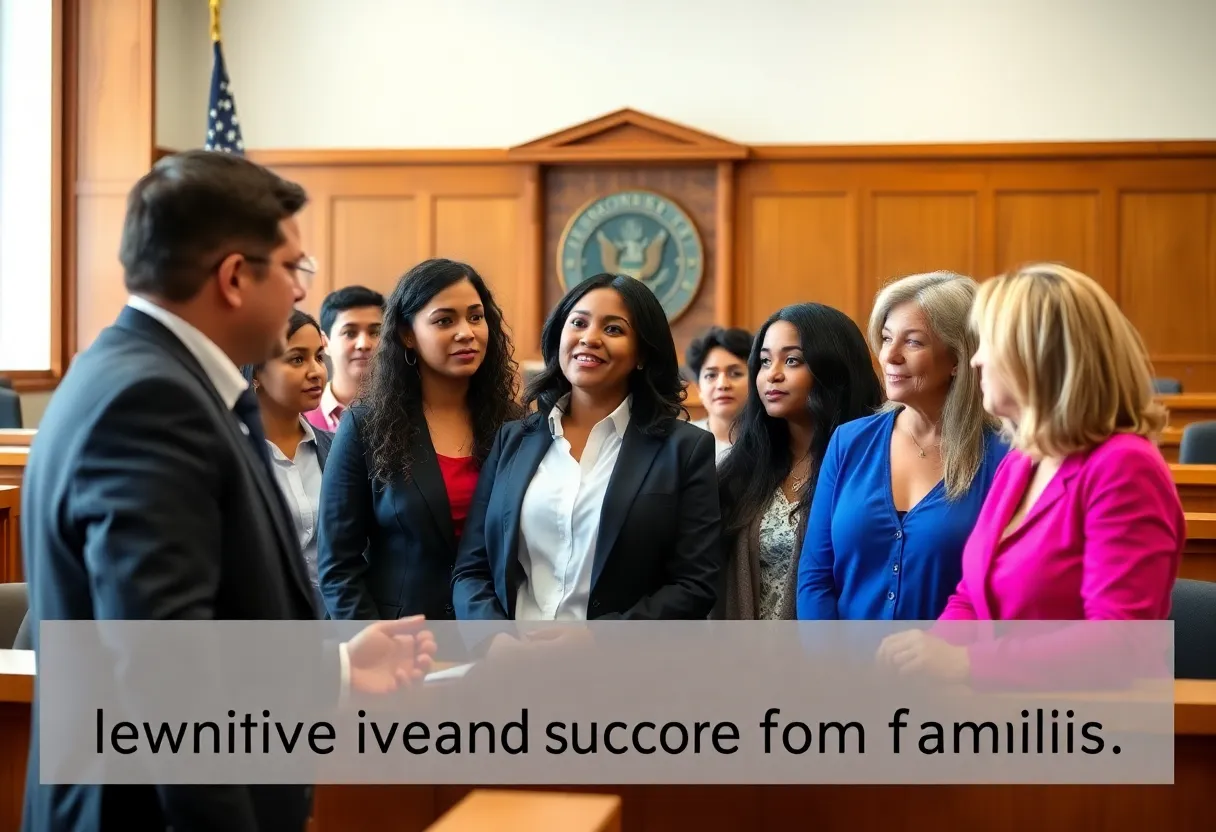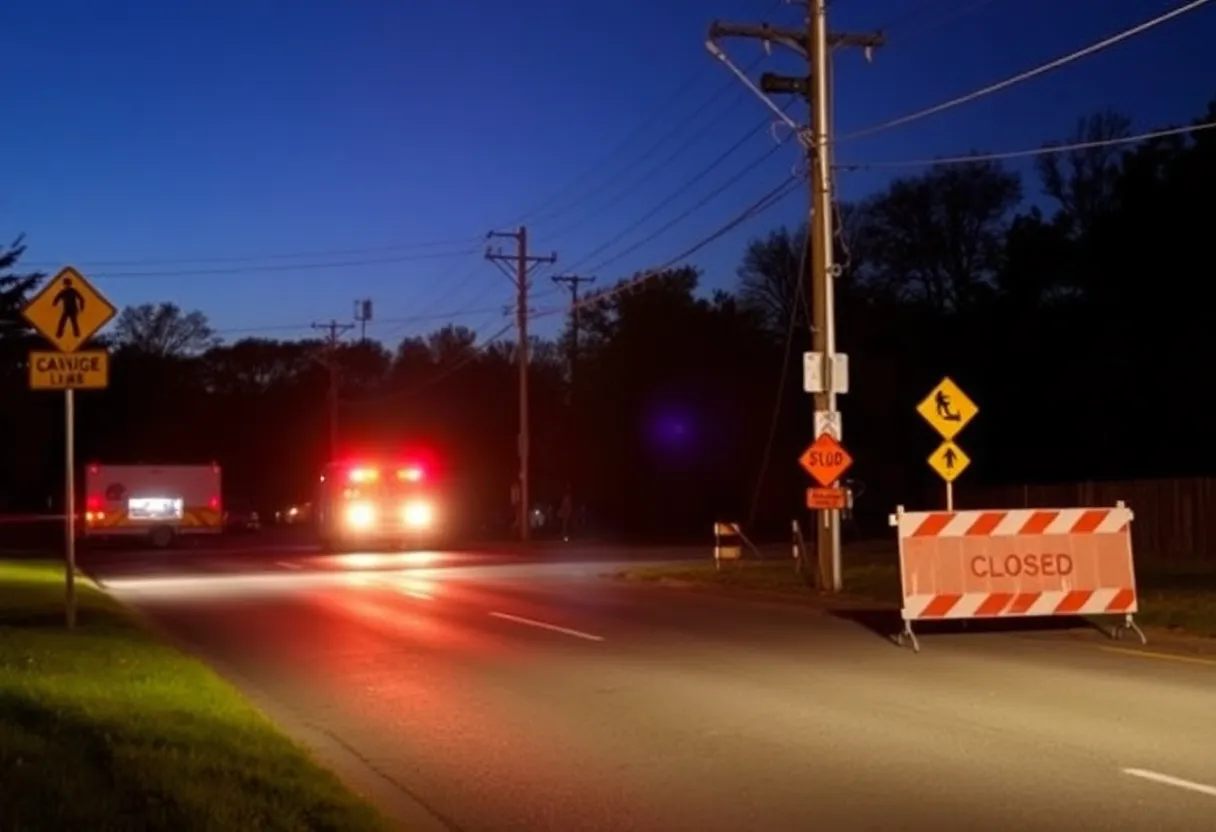News Summary
In a recent federal court appearance, civil rights attorneys raised concerns that the Trump administration may be violating a legal settlement supporting immigration legal services for families separated at the U.S.-Mexico border. U.S. District Judge Dana Sabraw discussed possible breaches of mandated legal support as the settlement prohibits family separation for eight years. The ongoing debate reflects larger issues surrounding immigration practices and the rights of affected families. The ruling is anticipated soon, which could dictate further necessary actions from the government to comply with the settlement agreement.
San Diego – Civil rights attorneys argued in federal court that the Trump administration is likely violating a 2023 legal settlement that supports immigration legal services for families separated at the U.S.-Mexico border under the controversial “zero tolerance” policy. U.S. District Judge Dana Sabraw, who has overseen the relevant lawsuit since 2018, indicated that there might be breaches related to provisions for these critical legal support services.
During a recent hearing, Judge Sabraw asked for additional information from attorneys representing the government and the American Civil Liberties Union (ACLU) to aid in making a ruling on the matter by the end of May. The settlement in question encompasses around 9,000 class members, prohibiting the government from reinstating family separation policies for at least eight years. The agreement also mandates continued reunification and services for affected families.
This settlement was reached at the end of 2023 under the Biden administration following a lawsuit brought in 2018 that questioned the legality of the family separation approach. As of October 2023, the government’s effort to reunite families had successfully made contact with the parents of 1,126 separated children, although 72 parents remain unaccounted for, many presumed to be deported. Furthermore, over 4,800 parents and children were admitted into the U.S. to pursue legal status as part of the settlement terms.
Previously, legal support services for these families were provided by government contractors, including the Acacia Center for Justice. However, the Trump administration defunded Acacia last month, raising further concerns about the continuity of services for these vulnerable populations. The administration now claims that the Department of Justice can directly delegate legal services to pro bono legal providers; however, this has been met with skepticism regarding its effectiveness in addressing client needs.
ACLU attorneys argue that many potential clients will be dissuaded from seeking necessary legal help due to fears of retribution from the government that previously separated them from their families. This concern has drawn criticism regarding the practicality of the new plans. Acacia’s managing director expressed frustration over the abrupt cessation of support services, emphasizing the lack of any transitional plans for up to 2,000 plaintiffs whose cases are still pending.
Critics from pro bono organizations have labeled the government’s new plan as insufficient compared to previous tailored programs designed to cater specifically to the unique needs of separated families. In their defense, government attorneys contend that no class members have been denied legal services following the funding cut of Acacia. Nonetheless, ACLU representatives counter that assertion, stating there are significant inadequacies in the current resources available to affected families.
With Judge Sabraw’s ruling expected by May 30, 2023, he has suggested that enforcement measures may be implemented should he determine that the government is in breach of the settlement agreement. Prior to the upcoming hearing, the judge instructed the government to notify plaintiffs within 24 hours in cases of any detention related to individuals covered under the settlement.
The legal settlement is aimed at rectifying prolonged violations of due process experienced by immigration detainees in San Diego and Imperial counties. It is part of a broader national dialogue surrounding immigration policies, reflecting ongoing debates on how to best address the complexities of family separation and immigrant rights in the United States.
Deeper Dive: News & Info About This Topic
HERE Resources
California Governor Unveils $322 Billion Budget Amid Deficit
DHS Investigates California’s Cash Assistance Program for Immigrants
California Addresses Medicaid Budget Crisis with New Bill
California Allocates $2.8 Billion to Protect Medi-Cal
California Challenges Trump’s Birthright Citizenship Order
Tragedy Strikes as Migrants Die in Cold Border Crossings in San Diego
Additional Resources
- San Diego Union-Tribune: Attorneys for Previously Separated Families
- Wikipedia: Immigration to the United States
- San Diego Union-Tribune: Immigration Settlement Violated
- Google Search: Immigration Settlement Lawsuit
- Calexico Chronicle: Court OKs Settlement in Immigration Processing Suit
- Google Scholar: Family Separation Immigration Settlement
- Fox San Antonio: Council Approves $300,000 Settlement of Immigration Lawsuit
- Encyclopedia Britannica: Immigration Laws
- NBC San Diego: Settlement ACLU Border Patrol Relief for Immigrants
- Google News: Immigration Settlement








